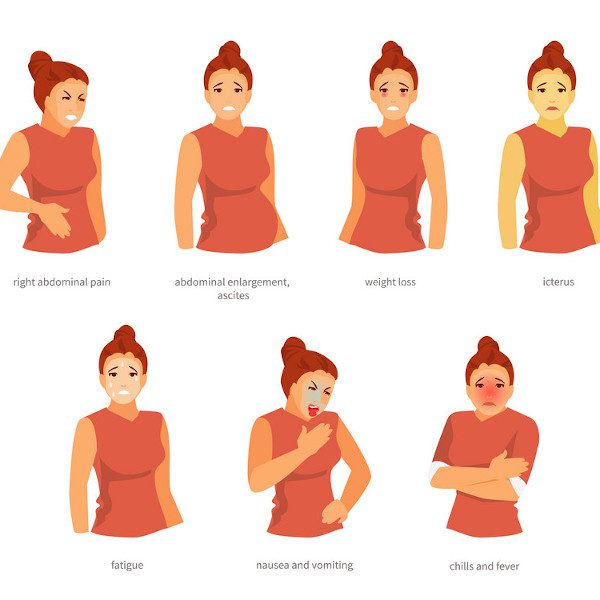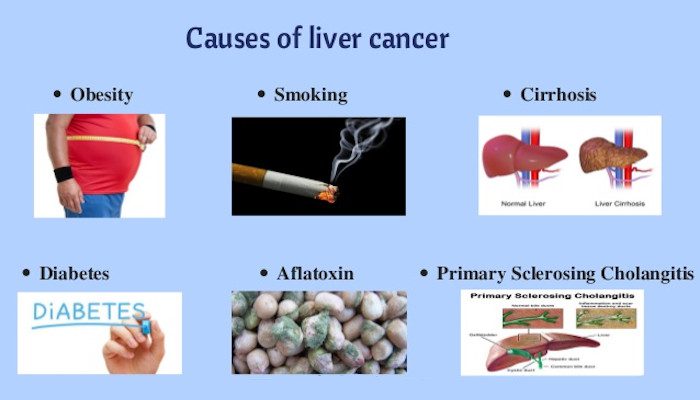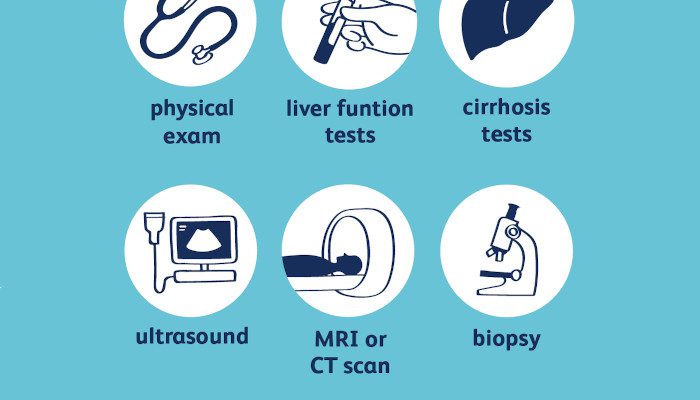Do you know that maintaining a healthy weight is essential for overall health? Nowadays, people are becoming obese by eating junk food and other unhealthy foods. But be aware of the fact that being overweight dramatically increases your risk of developing liver cancer. The frequency of liver cancer has increased recently, and it is a dangerous disorder that can have life-threatening effects. Though there are many liver cancer treatments available, still it’s our responsibility to take care of our health by avoiding unhealthy foods and clumsy lifestyles. People must comprehend the connection between obesity and liver cancer to take proactive measures towards healthier lifestyles. Here in this blog, we’ll examine how being overweight can increase the risk of developing liver cancer and the methods to lower it.
How excess weight raises the possibility of liver cancer:
The liver is a crucial organ that performs several metabolic tasks, such as removing toxins from the blood and assisting in digestion. But excessive liver fat accumulation might cause a condition known as Nonalcoholic Fatty Liver Disease (NAFLD). NAFLD is frequently linked to obesity and develops in people who drink little to no alcohol when fat accumulates in the liver. Nonalcoholic Steatohepatitis (NASH), a more serious illness that involves inflammation and liver cell destruction, can develop from NAFLD if it is not treated.
A significant risk factor for the onset and progression of NAFLD and NASH is obesity. Overeating causes extra fat to be accumulated throughout the body, particularly in the liver. This fat build-up may cause oxidative stress and liver inflammation, which may encourage the development of cancerous cells. Studies have shown that individuals with obesity-related liver diseases risk developing liver cancer more than those without these disorders.
Additionally, obesity can result in metabolic syndrome and insulin resistance, raising the risk of liver cancer. When the body’s cells stop responding to the hormone insulin, which controls blood sugar levels, insulin resistance develops. Because of this, the body makes more insulin, which may promote the development of liver cells and eventually result in cancer. Metabolic syndrome is characterized by high blood pressure, high blood sugar, abnormal cholesterol levels, and abdominal fat. A higher risk of liver cancer has been directly related to this illness.
Suggestions for lowering the risk of liver cancer:
Maintaining a healthy weight and living a healthy lifestyle is critical to lower the risk of liver cancer. The following advice can assist you in achieving and keeping a healthy weight:
- Balanced Diet: Focus on eating a diet that is well-balanced and contains fruits, vegetables, whole grains, lean meats, and healthy fats. Processed foods, foods heavy in saturated fats, and sugary beverages should all be avoided or consumed in moderation.
- Portion Control: Monitor the size of your portions to avoid overeating. Use smaller plates, measure serving sizes, and be aware of your hunger and fullness cues to practice portion control.
- Regular Physical Activity: Exercise frequently to help you keep a healthy weight. Aim for 75 minutes of strenuous aerobic activity or 150 minutes of moderate aerobic activity each week and strength training activities.
- Limit Alcohol Consumption: Evidence shows that drinking too much alcohol increases your risk of developing liver cancer. If you choose to drink, use it sparingly, it means no more than two drinks per day for men and one drink per day for women.
- Quit Smoking: Smoking has been associated with an increased risk of several malignancies, including liver cancer. If you smoke, get help to stop so that you can lower your risk of getting liver cancer.
- Regular Check-ups: Schedule routine check-ups with your healthcare professional to assess your liver’s health and review potential concerns. Early diagnosis of liver diseases can significantly enhance the effectiveness of treatment.
In conclusion, being overweight can raise the risk of liver cancer in human bodies due to the development and progression of obesity-related diseases like NAFLD and NASH. To lower the risk of liver cancer, it’s essential to prioritize keeping a healthy weight and establishing a healthy lifestyle. Individuals can take preventative measures to lower the risk of liver cancer by eating a balanced diet, exercising regularly, limiting their alcohol intake, stopping smoking, and scheduling routine check-ups. Keep in mind that maintaining a healthy weight not only improves your general well-being but is also essential for maintaining the health of your liver. Take control of your health by making decisions to help you maintain a healthy weight and reduce your risk of developing liver cancer. If you or your loved ones are suffering from cancer, it is essential to consult a cancer specialist to get the best treatment. So if you want to consult a specialist, you should consult Oncoplus, a cancer specialist in Delhi, India, for the best treatments. We are collaborating with India’s social security programs to develop a vision of a cancer-free and well-informed India.
According to the research of 2022 by American Society of Clinical Oncology, immunotherapy helps to improve the health of people who are suffering from advanced liver cancer and biliary tract cancer. This therapy improves the immune system of the patient by using their own body parts to fight diseases such as cancer. In other words, immunotherapy boosts the body parts of the patient so that they work smarter and fight cancer cells.
Biliary Tract Cancer develops in the bile duct (slender tubes) inside the liver (intrahepatic) or outside the liver (extrahepatic).The bile duct connects your liver to the small intestine and the gallbladder. Bile duct cancer mostly occurs after the age of 50 and is also known as cholangiocarcinoma. In this blog, you will read about liver cancer treatment with immunotherapy.
Symptoms of Biliary Tract Cancer:
- Yellow Skin and Eyes
- Itchy Skin
- Dark urine
- Pain in the abdomen
- Loss of appetite
- If you are losing weight but you are not trying,
- Your body temperature gets high or you feel feverish.
- Feeling of weakness or being unwell.
The Causes of Biliary Tract Cancer:
Normally, bile duct cancer occurs if the cells in the bile duct have changes in their DNA. And DNA is the chemical that is present in the cell and gives instructions to the cell on what to do. If there are changes in the cell, then it can give rise to tumors that can destroy healthy body tissues.
Dioxins, polychlorinated biphenyls (PCBs), and nitrosamines are some of the chemicals that cause bile duct cancer. People who work in rubber plants or in the automotive industry are generally exposed to these chemicals.
Factors that Increase the Risk of Biliary Tract Cancer:
- Smoking
- Obesity
- Diabetes
- HIV
- Excessive alcohol intake
- If you get infected with Hepatitis B and Hepatitis C,
How Does Immunotherapy Help to Prevent Liver Cancer?
People who are suffering from advanced liver cancer cannot be cured with surgery. According to recent research, to prevent liver cancer, doctor’s use a combination of immunotherapy drugs, i.e., tremelimumab targets CTLA-4 & durvalumab (Imfinzi) targets the PD-1 protein, which helps people deal with advanced hepatocellular carcinoma. This immunotherapy uses the body’s parts and improves the immune system so that it fights against cancer cells.
And people who are suffering from advanced biliary duct tract cancer also get relief from immunotherapy. To prevent biliary duct cancer, the combination of immunotherapy drugs, i.e., durvalumab (Imfinzi) with chemotherapy drugs like gemcitabine (Gemstar) and cisplatin, helped the patients live longer.
Liver cancer and biliary duct cancer cannot be removed with surgery. The patients can visit the best cancer hospital in Delhi for immunotherapy treatment. So, the immunotherapy treatment improves the health of patients suffering from cancer. The overall response rate of these immunotherapy treatments is that they stop the cancer from growing or shrinking in patients. But the side effects of this treatment are anemia, neutropenia, and nausea.
Read More Blog : Immunotherapy For Cancer Treatment In Delhi
A mastectomy is a treatment for breast cancer in which all the breast tissues, extra fat, and skin are removed by the surgeon from a breast in order to prevent breast cancer. And mastectomy with aesthetic flat closure means when a person decides to leave their chest flat after the mastectomy treatment rather than having breast reconstruction surgery.
According to the research, many surgeons do not support this decision to go flat. But, there are some women who feel comfortable with their decision to go flat, and there are a few women who are not satisfied with their decision.
A person who is suffering from breast cancer can make their final decision by consulting with their doctors. The best oncology hospital in Delhi is Oncoplus Hospital, where patients get the best advice and treatment for cancer. You will learn about mastectomy with flat closure treatment here.
What is going flat after a mastectomy?
When a woman undergoes mastectomy surgery and chooses to have a flat chest, they do not go for breast reconstruction after mastectomy or decide to have no reconstruction. Women who decided to have a flat closure for various reasons: they did not want to have additional surgeries; they did not want a foreign object in their body; they wanted to avoid the risk of surgery complications; and also avoid the risk of other health issues in their body.
Patients can make the decision of no breast reconstruction according to their lifestyle and preferences. Going flat after a mastectomy is the best option for a woman who has suffered from discomfort, pain, and surgery-related complications.
When do doctors recommend mastectomy for breast cancer?
- In the early stages of breast cancer (Stage 1 and 2).
- In the advanced stage of breast cancer (3 stage),
- If there is ductal carcinoma in situ (DCIU),
- Two or more tumors are found in the distinct area of the breast.
- If you had earlier had radiation treatment to the breast area and the breast cancer had recurred in the patient’s breast,
- If you are pregnant and the radiation treatment creates a risk for your child,
- If the patient undergoes lumpectomy but the cancerous tissues are still present in the breast, then there are chances that the cancer will extend to elsewhere in the breast.
- In this case, there is a Paget’s disease of the breast nipple.
- The patient has a large tumor, according to the overall size of the breast.
How to Recover From Mastectomy with No Breast Reconstruction
The patient who undergoes mastectomy with no breast reconstruction usually recovers more quickly than those who undergo mastectomy with breast reconstruction. To achieve flat closure, the patient goes through one procedure, but sometimes more than one.
In the first week after mastectomy, the patient feels pain as well as discomfort around the wound area. Normally, it takes 3 to 6 weeks to recover from a mastectomy. If the patient wants to recover quickly from mastectomy, then they should take rest when they feel tired, avoid lifting weights, walk regularly, and avoid activities like aerobics or jogging. If the patients want to drive again, they must ask their surgeon when they can drive again.
The best cancer treatment in Delhi is available at Oncoplus Hospital, where the latest technology is available to fight against cancer.



